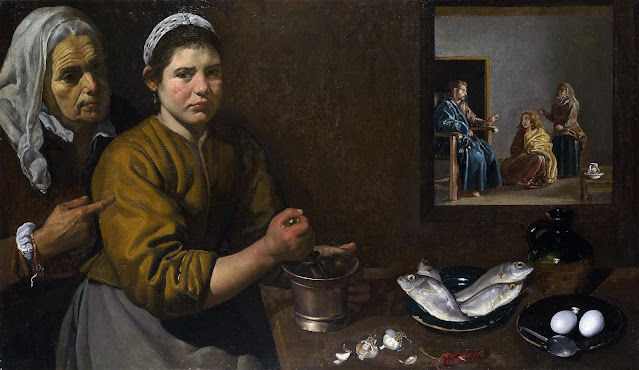It’s funny—even if you don’t like math very much, we spend a lot of our time obsessing over numbers, from the moment of our birth, when eager parents start counting fingers and toes and other appendages to the number of birthdays we have had. Then there’s numbers about weight and height, which most of us also have a profound ambivalence about all our lives, either because they are too big or too small. Through childhood we long to be older, and somewhere around age 25 many of us want the aging thing to stop altogether.
In our economic lives, there are a lot of numbers we obsess over. For many people right now are deeply worried about inflation rates, which here in the US are currently at a gulp-inducing 9.1 percent. And that is bad, especially for older people on fixed incomes or people working at the bottom of the economic ladder. But this is not simply a national problem—and so if we look outside our own blinkered view, we see that a vast majority of the industrialized world is suffering from inflation—the UK’s rate is currently 9.4%, the European Union area is at 8.9%, Spain is at 10.8%, Brazil is at 11.89%, Russia is at 15.9%, Argentina is at 64%, and Turkey is at a whopping 78.62%. ANNUALLY. Yikes.
Same thing about the price of gasoline, which we Americans love to shriek about. However, we are actually quite blessed. At the start of July, the cost in the US was currently $1.30 per liter or $4.92 a gallon, and it has fallen since. Compare that to Canada, at $6.01 per gallon, Germany at $7.53, France at $8.59, the UK at 8.78, and the Netherlands at $9.61.
There’s even fascinating numbers about our spending habits. For instance, in 2021 the average American spent an estimated $2,130 a year on coffee, and $1,528 on the year’s cell phone bill.
Those are some astounding numbers. Then there are some fun numbers.
I don’t know if you heard, but the Mega Millions lottery prize—which hadn’t had a winner since April 30 and apparently was finally won on Friday-- was at over $1.28 billion. BILLION. As in a thousand millions. And ONE ticket, sold just north of Chicago, had all the right numbers: 13, 36, 45, 57, 67 and a Mega Ball of 14. If the winner chooses a one-time cash payment they will receive $742 million dollars, otherwise it’s annual payments for the next few decades. The odds of winning are 302,575,350 to 1.
That’s a lot of numbers.
Even if you are normally a lottery agnostic, as many of us are, especially when we think about those odds, a lot of us like to have a little flutter when the pot gets that high. We daydream on what we might spend it on. But the fact is there is just no way you could spend that kind of money without almost killing yourself in the process.
Having lived in the smallest bedroom (WITH my Baby Sister) in a too-small house most growing up, it’s tempting to think about buying a bigger one, or buying one for your kids or for your mama. But then I remember something a wise man named George Carlin explained when I was a kid:
You got your stuff with you? I’ll bet you do. Guys have stuff in their pockets; women have stuff in their purses…. Stuff is important. You gotta take care of your stuff. You gotta have a place for your stuff. That’s what life is all about, tryin’ to find a place for your stuff! That’s all your house is; a place to keep your stuff. If you didn’t have so much stuff, you wouldn’t need a house. You could just walk around all the time.
A house is just a pile of stuff with a cover on it. You can see that when you’re taking off in an airplane. You look down and see all the little piles of stuff. Everybody’s got his own little pile of stuff.
So now you got a houseful of stuff. And, even though you might like your house, you gotta move. Gotta get a bigger house. Why? Too much stuff! And that means you gotta move all your stuff. Or maybe, put some of your stuff in storage. Storage! Imagine that. There’s a whole industry based on keepin’ an eye on other people’s stuff.(1)
Our readings this week warn about being more concerned about your stuff than about living a life with purpose.
Jesus does not always portray money as evil—look at how the Samaritan was willing to spend more than two full days’ wages tending to a helpless stranger a couple of weeks ago. The hoarding of money, however, he repeatedly condemns. And by the way, if you pay attention, parables with the phrase “rich man” in the Bible are almost ALWAYS criticizing not wealth, specifically, but a lack of support for the poor through the hoarding of resources by a very few.
There are numerous ways to use wealth for good—one of the easiest is using it to support your parish, your denomination, and various charities that are specifically engaged in trying to make the world a better place for all creatures great and small. But—and this is crucial in both Jesus’s time as well as our own current culture: Money can also be a way of lying to ourselves, telling ourselves that we are not dependent upon anyone but ourselves.
Take the rich fool in our parable. His love of money has cut him off from consideration of any other person, much less God. So he starts talking to himself. And even in his interior monologue, the rich fool only mentions himself. He uses the possessive pronoun repeatedly: “MY fruit, MY barn, MY goods, and even my SOUL.”
Then who interrupts that interior monologue but God Godself, who calls the man a fool and declares that at this very night the man’s soul will be demanded of him. Once again here we get the language of debt, and it is GOD who is the creditor. We may hold our souls in life, but they are merely here on loan--they are God’s possession eternally. The rich fool has allowed his wealth to isolate him so much that the only person he has to lie to is himself. He has forgotten about anyone else and the obligations he bears to the world around him. He has also forgotten about God.
This is far different from our discussion last week about a laborer praying for tomorrow’s bread today. That prayer is a prayer for enough. Especially on the heels of Jesus teaching us to pray for sustenance last week, this hoarding we see this week strikes a discordant note indeed.
After all, the rich fool did not get this huge crop by himself—he has been blessed with fertile land and appropriate weather including rain. Note, in fact, that “the land produced abundantly.” Not the wealthy man. It is doubtful he did any of the labor to cause this huge crop, but far more likely others toiled for his profit while he is engaged in rumination on how to protect the treasure that has been handed to him.
One of the biggest practices Jesus sought to correct was an idea that one group of people was inherently better than another group of people simply by lofty ideas of one’s own personal purity. But holiness is not based on what you declare unclean, or lesser than, and then avoiding that thing.
Holiness comes from what you give your heart to. Holiness comes from seeing yourself in a great interconnected circle with God and neighbor and dedicating yourself to the nourishing of good through seeing our obligations to others as blessings and opportunities to serve. Holiness comes from dedicating yourself to standing for others, and standing for God. Holiness comes not from greed, or miserliness, but through putting yourself at the service of empathy and love. It comes not from walling yourself off from the demands of love, but from embracing life and love with generosity and joy.
Holiness comes from giving your heart not to things, but to relationship with God and with each other. The rich fool has isolated himself from any consideration of others, and only thinks of himself. He prioritizes money and things over community, and over God. This is idolatry of the worst form.
Our lives are gifts. What we do with them should be a gift as well.
A week ago, the Newport Folk Festival was held in Newport, Rhode Island. This year’s festival was especially exciting, because for the first time in 20 years Joni Mitchell, a true songwriting and singing legend, was invited on stage by her young friend and fan Brandi Carlile, and actually performed a set. This is all the more remarkable because in 2015 Joni Mitchell suffered an aneurysm which nearly killed her and destroyed her ability to sing or play music. Through grit and dogged persistence--the same persistence that had helped her overcome being paralyzed with polio as a child--and through the love of a community of friends surrounding her, last week Joni Mitchell got up and sang some of her classic songs with help from a stage full of stars like Wynona Ryder and Marcus Mumford of Mumford and Sons.
One of the songs that she sang was one that I loved as a child called The Circle Game. It talks about the changes a child goes through growing up from infancy to adulthood.
There are numbers in this song: ten, sixteen, 20 years spin by, and the child learns about the world the entire time. And the chorus goes like this:
And the seasons, they go round and round
And the painted ponies go up and down
We're captive on the carousel of time
We can't return, we can only look
Behind, from where we came
And go round and round and round, in the circle game.
Joni’s song is beautiful. But as I watched clips of her singing it, I saw the circle as something else—the circle of love and compassion that grounds us, centers us, and heals us when we have been told all hope is lost. I saw the circle as all of those people who she drew to herself with her beautiful songs, and who gathered over the years to help her heal and encourage her—many of them gathered with her on that stage.
As Christian disciples, we have a center to our circle—and that is Jesus. Jesus reminds us that what is important is not how much wealth or possessions we have, but how much we engage with putting what we have to use for the good of our friends, families, churches, neighbors, and communities. How much we look after the least of those around us. That’s where true richness lies.
Jesus calls us to see the Circle of God’s kingdom in our lives, and to make that our priority. To treasure each other, and to treasure what we can do to promote God’s kingdom, God’s justice, and God’s boundless compassion and mercy for those around us. To make the circle bigger and bigger until everyone is included.
Let your life, and your resources, build the circle of God, and watch the joy rise up in your life. That’s the greatest gift of all.
Readings:
Hosea 11:1-11
Psalm 107:1-9, 43
Colossians 3:1-11
Luke 12:13-21
Citations:
1) George Carlin, Monologue about "Stuff," at YouTube, https://www.youtube.com/watch?v=MvgN5gCuLac
2) Video from Newport Folk Festival, July 24. 2022.











